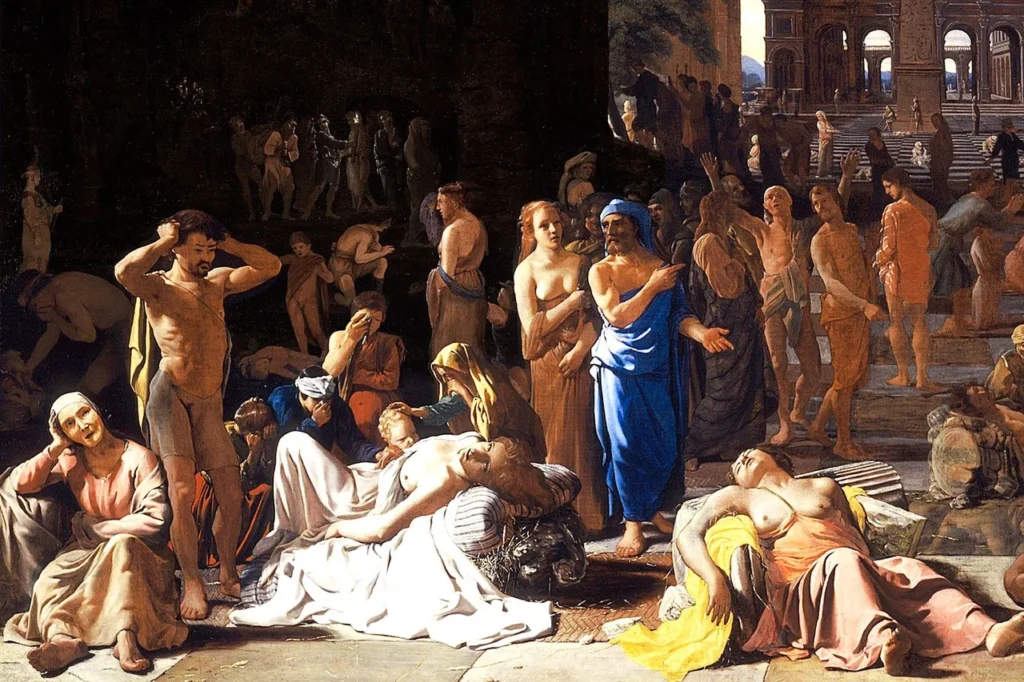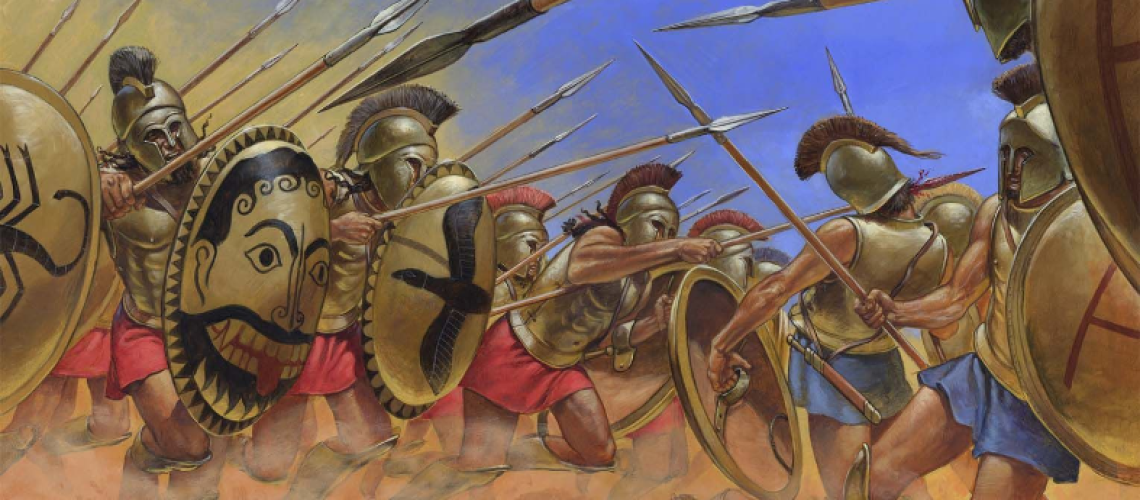The rivalry between the Athenians and the Spartans, a.k.a the Peloponnesian War is one of the most iconic conflicts of the ancient world. The war between the two great societies spanned 27 years, with many time phases governing the course of the battle. In the second year of the war, the Athenians were hit with a major detriment that would cost them their resources, money, traditions, and most of all, their people. It was not caused by the Spartans, but rather a natural occurrence deemed the Plague of Athens.

In 430 BC, the epidemic first started in the port of Piraeus, where much of the city’s food and other resources were. Ultimately, it is said that the plague killed around 75,000 to 100,000 people, or around a quarter of the Athenian population. With such a decrease in population, the city-state lost much of its manpower. In fact, there were so many dead bodies that they gave up on their burial traditions and opted to burn all of the bodies out of necessity. Luckily, famous Greek historian and plague survivor Thucydides wrote a first-hand account of the plague in his history of the Peloponnesian War.
While the Athenians lost an abundance of their material wealth, they also suffered great social losses. Those infected were left by their peers out of fear of contracting the illness. Scared their lives would end soon, Athenian citizens went on spending sprees and acted as they wanted. They ignored laws and morals, as they believed that they would not live long enough to experience the positive outcomes of acting justly. People abandoned their honoring of the gods, as they thought they had ignored their efforts and/or had no power. Temples dedicated to the divine were riddled with dying citizens.
In the end, the plague affected Athenian power as a whole. The state was unable to expand further. As citizenship was a highly-regarded trait, outsiders could now easily forge their identity. Most of all, for once in the state’s reign, their fundamental religious truths and moral values were challenged and eventually broken.

